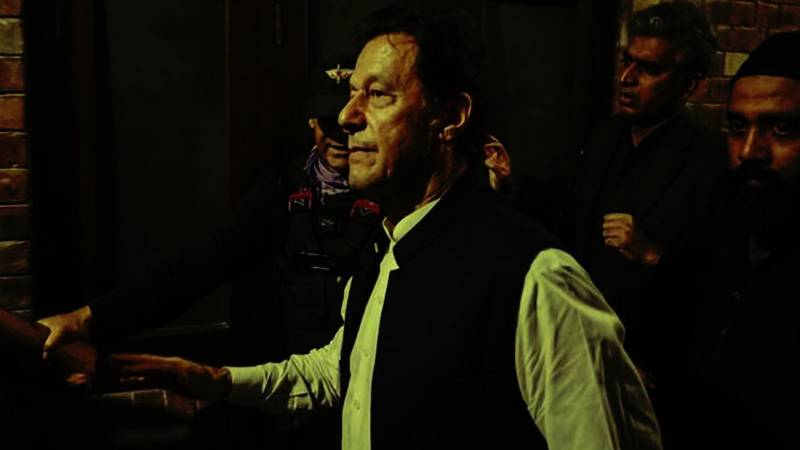
The Supreme Court (SC) on Tuesday granted permission to former premier and Pakistan Tehreek-e-Insaf (PTI) founder Imran Khan to appear in court via video link in the case related to National Accountability Bureau (NAB) law amendments.
While speaking at a program on Naya Daur TV, senior analyst Muzamal Suharwardy said that 'special justice’ is being given to Imran Khan by the judiciary. “How many prisoners have been given this opportunity to appear before court through a video link?” he questioned.
While responding to a question regarding the alleged interference of military establishment in judicial affairs, he said that Islamabad High Court (IHC) Justice Babar Sattar has written another letter to Chief Justice of Pakistan (CJP) Qazi Faez Isa in which he claims that he is being pressured to recuse from the audio leaks case.
"Why has Justice Babar Sattar not mentioned the name of a person (who is pressurizing him) in his letter?” he questioned.
Suharwardy said that, as a judge of the IHC, Justice Sattar has the authority to take action against anyone who is pressuring him. “Is he writing letters to the CJP just for media attention?” he questioned.
While talking about Dubai leaks, the analyst said that property tycoon Malik Riaz's name is not on the list, even though he is currently living in Dubai and doing business there. Dubai leaks are a conspiracy against the government, he added.
During the program, prominent human rights activist Barrister Yasser Latif Hamdani talked about the National Commission for Human Rights (NCHR) report, in which the persecution of the Ahmadiyya community was highlighted.
Hamdani said that it is the first report released by the NCHR, which is a government organization. “In 1974, Ahmadis were declared non-Muslim, but they are Pakistani, and Article 20 of the Constitution of Pakistan says everyone shall have the right to profess, practice, and propagate their religion,” he stated.
He said that Ahamdis are not allowed to profess, practice, and propagate their religion. The state must play its role in curbing hate speeches by clerics, he concluded.
